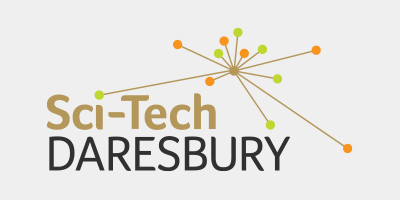August 1, 2024
What is a Science Park?
Science parks drive startup growth with cutting-edge tech, collaboration opportunities, and business support, creating vibrant ecosystems for innovation.

In today’s fast-paced and innovation-driven world, the need for businesses to stay ahead of the curve is more critical than ever. Where science, technology, and engineering startups are based can greatly impact their growth and success.
Science parks, also known as research parks, technology parks, or innovation centres, are property-based developments that are designed to help science startups and SMEs grow. They are typically associated with a university or research institution.
In this article, we will cover:
- The purpose and benefits of science parks
- Essential features of modern science parks
- Why choose a science park? The benefits explained
- Inspiring success stories from around the globe
- Future trends in science park development
- Discover the possibilities at a science park near you
What is the purpose of Science Parks?
Science parks promote collaboration and innovation. They include high-tech spaces, designated laboratories, collaborative workspaces, and areas for new talent to grow.
Like-minded businesses choose science parks to collaborate on solutions and technologies that will benefit future generations.
In these parks, you will find businesses from various science and technology fields such as IT (Information Technology), AI (Artificial Intelligence), IoT (Internet of Things), life sciences, materials, advanced engineering, sustainability and more.
Often supported by universities and/or local authorities, science parks are a popular choice for startups looking for investment opportunities, business support and access to state-of-the-art facilities and equipment. They are also a favoured option for scale-ups looking for space to expand their business, often on the back of commercial growth or investment.
These tech ‘communities’ or ‘parks’ play pivotal role in driving progress and innovation across various sectors via:
- Promoting innovation with the creation and growth of innovation-based companies through incubation programmes and spin-off processes.
- Supporting startups and high-growth SMEs with access to state-of-the-art equipment and facilities, business support services, networking opportunities and the ability to flexibly expand as the business grows.
- Promoting collaboration between academia, industry, and government to drive technological advancements and global adoption of research outcomes.
- Economic development by contributing to both local and national economies by creating jobs, attracting foreign investment, building supply chains and promoting exports.
Science parks attract popularity because they are specifically designed and resourced to drive collaboration between academia and industry. They also often have access to advanced research facilities, business support services, and a community of like-minded innovators willing to share knowledge, which you wouldn’t find in a traditional business park.
A Journey Through the Evolution of Science Parks
The concept of science parks dates back to the mid-20th century. The world’s first university research park, Stanford Research Park, was launched in 1951 as a cooperative venture between Stanford University and the City of Palo Alto. Another early example is Research Triangle Park in North Carolina, established in 1959.
Since then, science parks have evolved and grown worldwide. Here are some significant milestones in the development and expansion of science parks:
- Pierre Laffitte, a scientist and politician, founded Sophia Antipolis Science Park in France in 1969. This was one of the first parks to move away from heavy industry and focus on the knowledge economy, emphasising the “cross-fertilisation” of ideas across various fields.
- Founded by Trinity College in 1970, Cambridge Science Park was the first university science park in the UK. It has been pivotal in transforming Cambridge into a global tech hotspot.
Over time, the concept of science parks has expanded globally, adapting to regional needs and focusing on various high-tech industries. Today, they are a key component of the knowledge economy, and for innovation and economic growth.
Essential Features of Modern Science Parks
Science parks offer a range of features and components designed to support their tenants’ growth and innovation. These include:
Advanced Research Facilities: Equipped with state-of-the-art laboratories and specialised equipment.
Incubators: Providing startups with resources and mentorship to grow their businesses.
Office Spaces: Flexible office solutions catering to businesses of all sizes.
Business Support Services: Including access to funding, marketing, talent and specialist expertise in areas such as legal, financial and commercial.
These innovative features are ideal for startups, with world-leading scientific organisations on their doorstep, bringing together a range of talents, experience and knowledge.
Science parks offer plenty of opportunities to collaborate and connect with like-minded individuals across similar industries. Most science parks provide co-working spaces and high-tech meeting areas, making collaboration easy.
Why Choose a Science Park? The Benefits Explained
Choosing a science park can provide significant benefits to businesses, including startups, scaleups and the broader economy. Here are some key benefits:
Access to Cutting-Edge Technology: Tenants can utilise the latest technological advancements and research facilities, and access expertise to help them take full advantage of these.
Collaborative Opportunities: Proximity to other high-tech companies and academic institutions makes collaboration and knowledge sharing easy. At Sci-Tech Daresbury for example, 76% of companies collaborate with another organisation on the same campus and 57% of them collaborate with a university.
Funding and Investment: Many science parks provide connections to venture capital, grant funding and other sources of investment. Sci-Tech Daresbury has connections to around 30 VC funds, angel networks and grant funding organisations.
Business Growth Support: Comprehensive support services help businesses scale and succeed. Sci-Tech Daresbury has a Gold and Silver partnership programme which provides expertise in marketing, IP, finance and taxation, legal, insurance, R&D and tech commercialisation.
Choosing a science park positions your business in a dynamic environment that drives innovation and growth. With access to advanced technology, collaborative networks, and strong support services, companies in science parks are well-equipped to succeed and make a significant impact in their industries.
For businesses ready to scale and innovate, science parks offer the perfect foundation for success. Examples of successful companies that started in science parks include global giants like AstraZeneca, Huawei, and IBM.
Inspiring Success Stories from Around the Globe
Several science parks around the world have made significant contributions to innovation and economic growth:
- Hsinchu Science Park in Taiwan, known for its semiconductor and electronics industries, established itself in 1980. By 2003, it was home to more than 400 high-tech companies.
- Kista Science City in Stockholm is developing the world’s 4G LTE mobile telephony infrastructure. As the world’s second-largest science park and Europe’s largest ICT (Information and Communications Technology) cluster, it hosts companies like Ericsson and IBM.
- Founded in 1970, Cambridge Science Park is the oldest science park in the UK and is home to over 100 companies across biotech, telecoms and tech. Some of the most notable companies include Huawei, Bayer and Roku.
These science and innovation campuses succeed largely due to their strategic locations. They benefit from access to local universities, research institutions, and investments from local authorities.
Future Trends in Science Park Development
As society evolves and research into our environment and technologies increases, these purpose-built ‘communities’ or ‘parks’ are becoming popular among new startups focused on future science and technology.
Linking with well-known large corporations helps build business reputations and opens opportunities for international partnerships, creating new paths to innovation.
Sustainability is now a key focus in science and technology. Many businesses are concentrating on sustainable development, eco-friendly practices, and how science can protect the climate and support societal needs.
Technology also plays a huge role in how businesses adapt to change, work towards zero emissions targets, and follow global guidelines.
The future of science and innovation will emphasise these trends, adapting to new technological advancements and global economic shifts.
Discover the Possibilities at a Science Park Near You
Science parks are more than just physical spaces; they are vibrant ecosystems and communities that fuel innovation, support startups and high-growth SMEs, create jobs and drive economic growth.
From promoting cutting-edge research and development to providing valuable business support services, science parks offer a wealth of opportunities for businesses at all stages of growth.
If you’re looking to position your startup or high-growth SME at the forefront of technological advancement and innovation, a science park is an ideal choice.
Explore the benefits of access to advanced research facilities, collaborative opportunities with leading academic and industry experts, and a supportive environment designed to help your business thrive.
To learn more about how Sci-Tech Daresbury can provide the perfect environment for your business’s growth, contact us today to enquire about available spaces and discover the opportunities that await you.





